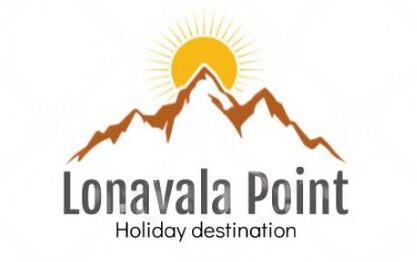Introduction
If you’re drowning in debt and have a bad credit score, an unsecured debt consolidation loan might be your lifeline. But what exactly is it? And can you qualify with poor credit? Let’s break it down.
Understanding Unsecured Debt Consolidation Loans
What is an Unsecured Loan?
An unsecured loan is a loan that doesn’t require any collateral. Unlike secured loans, which are backed by assets like your home or car, unsecured loans rely solely on your creditworthiness.
How Debt Consolidation Works
Debt consolidation involves combining multiple debts into a single loan with one monthly payment. This can simplify your finances and potentially reduce your interest rate.
Benefits of Debt Consolidation
The main benefits include simplified payments, potentially lower interest rates, and a clear end date for your debt payoff. It can also help improve your credit score if managed properly.
Bad Credit: An Overview
What is Considered Bad Credit?
A credit score below 580 is typically considered bad. This can make obtaining loans and credit cards more challenging and more expensive due to higher interest rates.
Causes of Bad Credit
Bad credit can result from late payments, defaults, high credit utilization, bankruptcy, and having little to no credit history.
Effects of Bad Credit on Loan Applications
With bad credit, lenders see you as a higher risk. This can lead to loan denials or offers with higher interest rates and less favorable terms.
How Unsecured Debt Consolidation Loans Work with Bad Credit
Eligibility Criteria
Eligibility varies by lender, but common criteria include a minimum credit score, proof of income, and a manageable debt-to-income ratio.
Loan Terms and Interest Rates
For those with bad credit, interest rates on unsecured loans can be high. However, they might still be lower than the rates on your existing debts.
Application Process
The process usually involves filling out an application, providing financial documents, and possibly undergoing a credit check.
Pros and Cons of Unsecured Debt Consolidation Loans for Bad Credit
Advantages
- Simplified Payments: One payment instead of many.
- Potential Savings: Lower overall interest costs.
- Credit Improvement: Better credit score if payments are made on time.
Disadvantages
- High Interest Rates: Rates can be high for those with bad credit.
- Risk of Default: Missing payments can further damage your credit.
- No Collateral: Unsecured means no assets are at risk, but this also means higher rates.
Weighing the Pros and Cons
Consider your financial situation and whether the benefits outweigh the potential drawbacks.
Steps to Apply for an Unsecured Debt Consolidation Loan with Bad Credit
Assessing Your Financial Situation
Understand your debts, income, and expenses. Calculate your debt-to-income ratio.
Gathering Necessary Documentation
Collect pay stubs, tax returns, and a list of your debts and creditors.
Choosing the Right Lender
Look for lenders specializing in bad credit loans. Compare their terms, rates, and reviews.
Submitting Your Application
Fill out the application accurately and honestly. Be prepared to explain your credit situation.
Improving Your Chances of Approval
Enhancing Your Credit Score
Pay down existing debts, correct errors on your credit report, and avoid new credit inquiries.
Presenting a Strong Financial Profile
Show stable income and a reasonable debt-to-income ratio. Highlight any positive changes in your financial situation.
Considering a Co-Signer
A co-signer with good credit can improve your chances of approval and potentially get you better terms.
Alternative Options for Debt Consolidation with Bad Credit
Secured Loans
Use collateral to secure a lower interest rate. Risks include losing your asset if you default.
Debt Management Plans
Work with a credit counseling agency to create a repayment plan. This might involve lower interest rates and waived fees.
Balance Transfer Credit Cards
Transfer high-interest debt to a card with a lower rate. Be cautious of transfer fees and the promotional period ending.
Tips for Managing Debt After Consolidation
Creating a Budget
Track your income and expenses. Prioritize paying off your consolidation loan.
Avoiding New Debt
Resist the temptation to accumulate more debt. Stick to your budget.
Monitoring Your Credit Report
Regularly check your credit report for errors and signs of improvement.
Case Studies and Personal Experiences
Success Stories
Jane reduced her interest rate from 25% to 15% with a consolidation loan, making her monthly payments more manageable.
Challenges Faced
Mike struggled initially but eventually improved his credit score by sticking to a strict budget and making timely payments.
Frequently Asked Questions
What Credit Score is Needed for an Unsecured Debt Consolidation Loan?
Generally, a score above 580 is needed, but some lenders cater to those with lower scores.
How Long Does It Take to Get Approved?
Approval times vary but can range from a few hours to a few days.
Can I Get an Unsecured Debt Consolidation Loan Without a Co-Signer?
Yes, but having a co-signer can improve your chances and loan terms.
What Happens If I Default on the Loan?
Defaulting can severely damage your credit score and result in legal action by the lender.
How Much Can I Borrow?
Loan amounts depend on the lender, your credit score, income, and debt levels. It can range from a few thousand to tens of thousands of dollars.
Conclusion
Unsecured debt consolidation loans can be a viable solution for managing multiple debts, even with bad credit. While they come with higher interest rates and potential risks, the benefits of streamlined payments and potential interest savings can make them worth considering. Assess your financial situation, explore your options, and take the necessary steps to improve your credit and secure the best possible terms. With careful planning and discipline, you can take control of your debt and work towards a brighter financial future.
FAQs
- What Credit Score is Needed for an Unsecured Debt Consolidation Loan? Generally, a score above 580 is needed, but some lenders cater to those with lower scores.
- How Long Does It Take to Get Approved? Approval times vary but can range from a few hours to a few days.
- Can I Get an Unsecured Debt Consolidation Loan Without a Co-Signer? Yes, but having a co-signer can improve your chances and loan terms.

